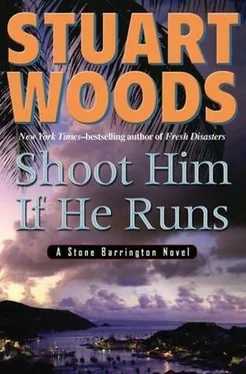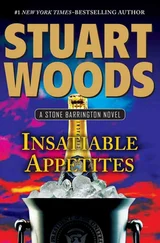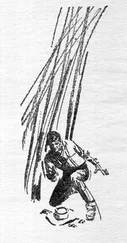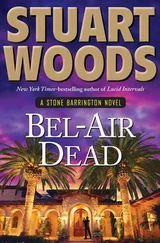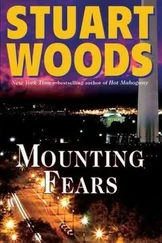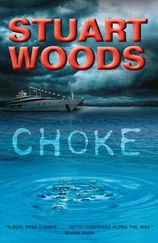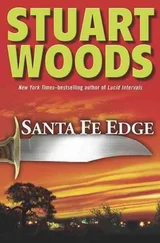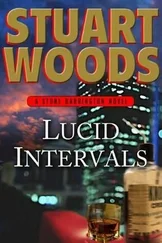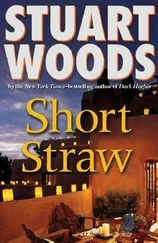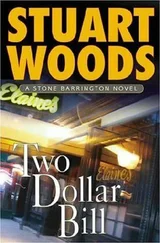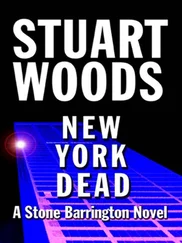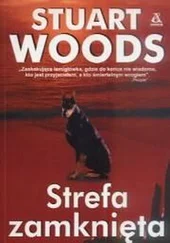He would be ready. He glanced at his watch. If he got to bed early, he’d get a good seven hours of sleep before the alarm went off. He got back into the vehicle and headed back to Black Mountain.
Stone and his party lingered over coffee, enjoying the pleasant night air. Thomas came and joined them, bringing a bottle of brandy and some glasses.
“Thomas,” Stone said, “is life going to be easier, with Colonel Croft out of your hair?”
“It’s going to be cheaper for a while, until his replacement, duBois, finds his feet, but soon enough, he’ll be around with his hand out, and I’ll have to pay.”
“That’s a permanent condition, then?”
“The cost of doing business. You know, our native folks would be embarrassed to ask a bribe from someone; that’s why I think Sir Winston hired the two Haitians. Their experience at extracting blood from stones runs long and deep.”
“The St. Marksian reluctance to bribe doesn’t seem to extend to Sir Winston.”
“No, once political power is achieved, embarrassment vanishes. Sir Winston just looks at the money as his due.” Thomas smiled. “But taxes are low, and so is labor, so it all evens out. I’ll get by.”
They all raised their glasses and drank their cognac.
Lance sat in the study of his new house, surrounded by boxes of unpacked books, and read one. He needed to clear his head of work, he knew, so he’d be fresh tomorrow, when he started reading operations files again. Still, Holly’s non-communication nagged at him. He dialed her satphone number again and waited: no answer. Then, just on the off-chance, he called his office number and entered the codes for his voicemail.
Holly’s voice came through clearly; she had done everything he’d instructed her to and had come up with nothing. Pemberton and Weatherby were dry holes. She finished with a plea for the jet to pick them up. That didn’t concern Lance, since Carolyn would have already notified her. Having e-mailed her Mona Barry’s photographs, he had done all he could do, too. He hung up, took a deep breath and gave himself over gratefully to Winston Churchill’s account of World War II tank operations in North Africa.
Teddy woke five minutes before the alarm would have gone off. He dressed, brushed his teeth, went to his workshop, grabbed the sniper’s rifle and went outside to his vehicle. Twenty minutes later, he was climbing the hill that overlooked duBois’s apartment building. He parked among some other vehicles, walked into the park and looked carefully around. The sun was not up yet, and the place was deserted. He made his way through the bushes to the coral wall and opened the rifle case.
He fastened the stock to the gun and screwed in the silencer and, first making sure that no one could see him, laid the weapon on top of the wall while he set up a small tripod. Then he hoisted himself up and sat on the wall, waiting for sun.
The sunlight illuminated the top of the building first, then began working its way down as the orb rose. Teddy saw some movement inside the penthouse. He didn’t know in which apartment duBois lived, but he hopped down from the wall and sighted through the powerful scope. He saw movement again, a figure crossing a room behind some sheer curtains.
Then, in an amazing stroke of luck for Teddy, a sliding glass door opened, and duBois, wearing pajamas, stepped into the sunshine striking his deck. Teddy perfected his aim and waited for the man to stop moving.
DuBois took a few steps, then stopped and spread his arms in a great stretch, yawning. Teddy squeezed off the round and saw the red plume from the chest as the tip of the.223 bullet exploded. DuBois staggered backward and fell into the plate glass door behind him, smashing it.
Teddy did not tarry. He disassembled the rifle, packed it into its case, viewed the park from the bushes to be sure he was still alone and walked unhurriedly toward his vehicle, pulling his baseball cap low over his face and donning sunglasses.
He reached the vehicle, and as his hand touched the door handle, a woman stepped out of her house a few feet away, bent, and picked up a newspaper, then glanced up at him as he started the engine. She smiled and gave him a little wave, and he waved back. She didn’t know him, but he had been seen.
He drove back to Black Mountain, never going faster than thirty miles an hour. Then, as he approached the turnoff to the road up the mountain, the black Mercedes that carried Sir Winston Sutherland to his office each day turned onto the main road and passed Teddy, going in the opposite direction. Before Teddy had even had time to think, he had made a U-turn and was following the Mercedes at a distance of a quarter of a mile.
Teddy’s mind began to work at top speed, calculating time and distance and plotting an escape route over a road through the hills. All this just in case the opportunity arose. He had thought about doing this many times but he had devoted his energies to eliminating Croft and duBois; Sir Winston would be more complicated, he knew, and he had not done the planning, and he was cautiously excited.
He watched as the Mercedes entered the outskirts of Markstown and came to a screeching halt. Children dressed in their Sunday finest were pouring out of a church and crossing the road toward three school buses, apparently for an outing of some sort. A nun stood in the road holding a stop sign.
Teddy stopped some distance back and watched; then Sir Winston made his decision for him. He got out of his car and waded into the group, kissing them and touching their hands. The nun remained at her station, stopping traffic, as did another nun on the other side of the children.
Teddy turned right and up a hillside, then made a left into a dirt track that ended in a small clearing. Occasionally, he caught sight of the Mercedes and the crowd. He turned his vehicle in the clearing and pointed back toward the road; then he got out, grabbed the rifle case and started back on foot, looking for gaps in the foliage. He came to one that gave him a view of the rear of the car and part of the crowd, knowing that Sir Winston was a few steps away, among the children.
Teddy was not willing to risk hurting a child, but Sir Winston would have to return to his car, and when he did, Teddy would be waiting. He knelt, opened the case and quickly assembled the weapon. It would be a standing shot, and he clipped on a shoulder strap, wound his arm through it and sighted. He had a window about a yard square, and he knew he would have only a second or two to fire.
Then Sir Winston appeared in that frame, his driver holding the door open, no policemen in sight, and he did something unexpected: he stopped at the open door, turned and stood waving at the departing children.
Teddy got off his shot, and he was reminded of the effect the bullet had had on Colonel Croft’s head. He carried the rifle back to the vehicle, trying not to hear the screams of the children, tossed the weapon onto the front seat, started the truck and drove. When he came to the road, he turned left, away from the scene of the shooting, and began climbing into the hills.
The road turned to dirt, and Teddy drove through a series of crossroads, always turning right, making his way back to the main road. Along the way he stopped for a moment, disassembled and repacked the rifle, then continued on his way. He reached the main road and stopped to check for traffic. He turned left and made his way back to Black Mountain Road. In the distance he could hear sirens.
Back at the house he noticed that low clouds were moving over Black Mountain. He went over every surface of the truck with a cloth soaked in Windex, then locked the vehicle in the garage and went back to his workshop. He switched on his police scanner and began to wipe down every surface of the workshop. The scanner was alive with police broadcasts, directing cars both to duBois’s building and to block off streets around the church.
Читать дальше
